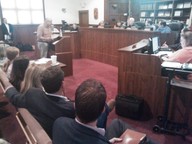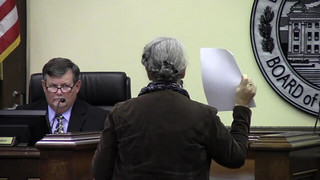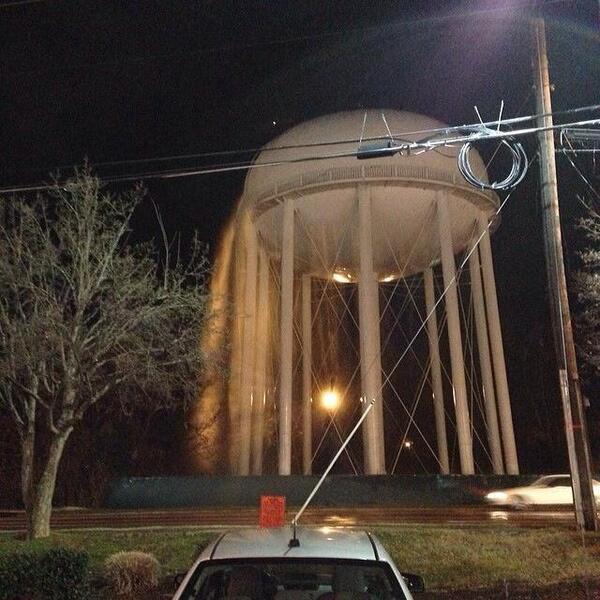Make pipeline companies answer questions, motivate implementation of safety standards, announce FERC Scoping meetings, and enforce reasonable local zoning restrictions: these are things local governments can do, and NTSB and FERC say they should do most of them. Gilchrist County Commission in Trenton, Florida has done most of them, and plans to continue doing more. The Lowndes County Commission and the Valdosta City Council still can, too, plus all the other county and city governments along the proposed pipeline path, and their statewide county and city government associations. Will our local elected officials represent we the people?
Make pipeline companies answer questions
 There were
Real questions at the Gilchrist County Commission meeting in Trenton, Florida Monday.
Two hours of first questions from a citizens committee with
Spectra’s reps expected to answer right there in front of everybody,
then questions from locals and people from many counties around,
including attorneys representing landowners and other county
commissions cross-examining Spectra on the spot. The Chairman of the
Gilchrist County Commission said there was a general opinion among
the populace that they were asking specific questions and getting
only general answers. Congratulations, Chairman, Commission, staff,
Committee, and everyone who asked questions for showing the world
how it’s done, and for exposing Spectra’s evasions to public
scrutiny.
There were
Real questions at the Gilchrist County Commission meeting in Trenton, Florida Monday.
Two hours of first questions from a citizens committee with
Spectra’s reps expected to answer right there in front of everybody,
then questions from locals and people from many counties around,
including attorneys representing landowners and other county
commissions cross-examining Spectra on the spot. The Chairman of the
Gilchrist County Commission said there was a general opinion among
the populace that they were asking specific questions and getting
only general answers. Congratulations, Chairman, Commission, staff,
Committee, and everyone who asked questions for showing the world
how it’s done, and for exposing Spectra’s evasions to public
scrutiny.
 This is in sharp contrast to Continue reading
This is in sharp contrast to Continue reading




 Less than two years after
Less than two years after











